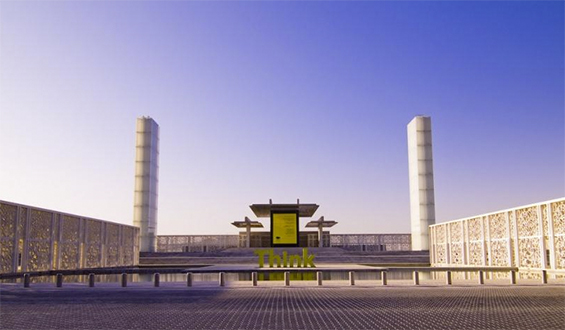
Six American universities have accepted Qatar’s invitation to set up campuses in their nation despite a host of concerns and criticisms.
The ruling family has funded the import of prestigious American programs to the world-class facilities in a magnificent complex called Education City outside of Doha.
Universities that took up the offer include Northwestern, Cornell, Carnegie Mellon, Georgetown, Texas A&M, and Virginia Commonwealth. About 2,000 students now attend school at Education City, which comprises 2,500 acres, according to Greg Toppo of USA Today.
Sheikha Moza bint Nasser, Chair of the Qatar Foundation for Education, Science, and Community Development, was mostly responsible for the project, reports Nick Anderson of the Washington Post. She said:
Bringing these academic programs here was not just for the sake of these programs. We brought them here to elevate all aspects of our society. … We wanted our citizens to be mentally open. We wanted them to be critical thinkers, to have a stake in the country.
The Qatar Foundation, which funds the universities, was created in 1995 by Sheikh Hamad bin Khalifa Al Thani, the emir at the time, writes Anderson. Each year for the last 15 years, the foundation has spent more than $320 million on these universities.
Originally, the plan was only to include the University of Virginia, reports Shabina S. Khatari and Peter Kovessy of Doha News, but the university backed out of the deal in 1999. The government was undeterred and built Education City anyway, inviting other universities to populate it.
Hunter R. Rawlings III was Cornell’s president when it joined in on Education City and is now president of the Association of American Universities. He said:
Part of our thinking was, most American involvement in the Middle East has to do with guns and oil. This project seems to have to do with medicine and education. It’s such a different message. Why don’t we try it?
Qatar adheres strictly to Muslim law, leading some critics to wonder if academic freedom for teachers and students was truly guaranteed. Part of the success of US universities lies in the commitment to free speech, but this may clash with Qatar’s conservativism.
Harry R. Lewis, a computer scientist and former dean of Harvard, believes that Western values are a key part of these universities’ success, and these values may not translate well for Qatari students. He said:
It’s like trying to pick up French grapevines and plant them in Idaho or somewhere. It might work. But the soil conditions and the light conditions are different. Those things really matter.
However, both the Sheikha and university faculty have reported that cases of censorship and nepotism are rare. Georgetown, before choosing to open up a campus in Qatar, “carefully and exhaustively examined” whether teaching in the country would compromise its “core moral values,” eventually deciding that it would not.
US colleges and universities have been opening up campuses around the world to encourage the globalization of education. However, these same universities have been criticized for their actions overseas. For example, campuses in Abu Dhabi have been accused of benefiting from migrant labor exploitation and of providing legitimacy to oppressive governments in China and Singapore.




